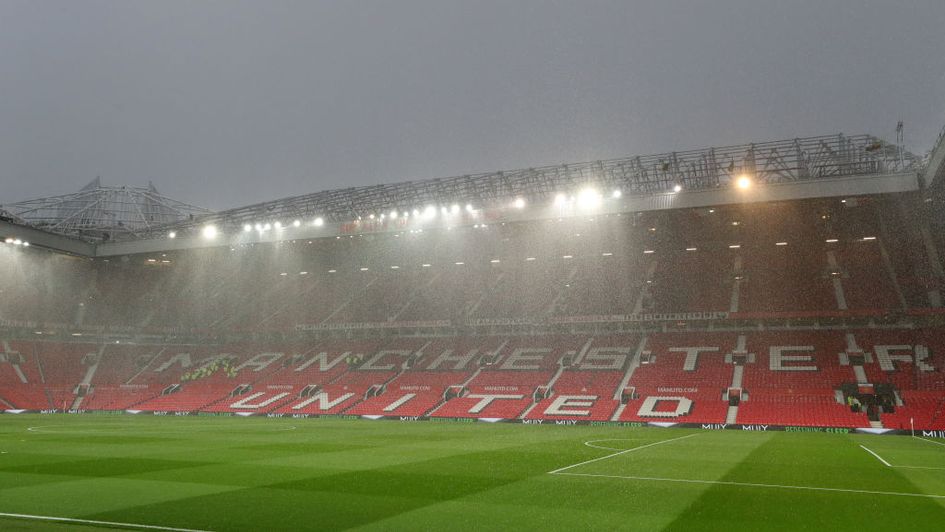In the Theatre of Dreams, the drama rarely ceases. As Manchester United faces Chelsea, the familiar narrative of crisis, pressure, and existential questions about its managerial direction once again takes center stage.
How quickly can a crisis bloom? For Manchester United, it seems the answer is “quicker than you can say `Ole Gunnar Solskjaer`s at the wheel!`” Just five games into the season, the club finds itself ensnared in a narrative that feels less like an unforeseen setback and more like an annual tradition. The upcoming clash against Chelsea is not merely a Premier League fixture; it`s a referendum, another “make-or-break” moment for manager Ruben Amorim, whose tenure thus far has been characterized by a bewildering mix of unfulfilled promise and tactical rigidity.
The Weight of Expectation vs. Harsh Reality
Amorim arrived at Old Trafford heralded as the game`s next managerial prodigy, a beacon of tactical innovation poised to re-ignite a sleeping giant. A year on, the glow has faded, replaced by the harsh glare of scrutiny. While turning around a club of United`s magnitude, after years of systemic mismanagement, is no small feat, the consistent underperformance and tactical missteps are becoming increasingly difficult to attribute solely to inherited problems. The optimism that once surrounded Amorim`s appointment has given way to a palpable sense of unease, particularly after the humiliating 3-0 derby defeat to Manchester City.
That recent drubbing was a masterclass in disorganization, showcasing a defensive unit that appeared less like a cohesive backline and more like a collection of individuals hoping for the best. The introduction of new goalkeeper Altay Bayindir has, perhaps unfairly, coincided with this period of defensive fragility, adding another layer of instability to an already shaky foundation. The questions aren`t just about player performance; they penetrate deep into Amorim`s tactical choices and in-game adjustments.
A Rigid Blueprint in a Dynamic Game
In a league as fluid and demanding as the Premier League, adaptability is paramount. Yet, Amorim appears unusually committed to his preferred back-three system, a tactical hill he seems determined to die on, regardless of personnel or opposition. While consistency in philosophy can be a strength, an unwavering adherence to a single formation, even when it demonstrably fails to unlock an attack or shore up a defense, can quickly become a liability.
His substitution patterns, too, have become a focal point of criticism. Against Manchester City, trailing by two goals with half an hour remaining, the decision to introduce Harry Maguire and Kobbie Mainoo for Leny Yoro and Noussair Mazraoui was baffling. The apparent logic that Maguire, known more for his aerial presence in set pieces than his attacking prowess in open play, could be considered a primary goal threat speaks volumes about the team`s creative vacuum and the manager`s constrained options. It`s a pragmatic desperation play that, ironically, only amplified doubts about Amorim`s suitability for a club that demands attacking verve and strategic nimbleness.
The Unanswered Promises of New Signings
The summer transfer window brought a fresh wave of hope, as United`s hierarchy seemed to oblige Amorim with players tailored to his vision. Benjamin Sesko, Matheus Cunha, and Bryan Mbeumo arrived, promising to inject pace, power, and clinical finishing into an often-anemic attack. Yet, the anticipated “kick into high gear” has been conspicuously absent. The trio, while undoubtedly talented, have struggled to consistently impact games, raising uncomfortable questions: Are these players simply not good enough to elevate United, or is the tactical framework they operate within failing to maximize their potential? If the manager`s vision cannot integrate and amplify the talents of his chosen recruits, then the long, arduous season ahead for Manchester United might just be another chapter in their ongoing saga of self-inflicted wounds and unfulfilled prophecies.
The Crucible: Manchester United vs. Chelsea
Now, as United prepares to host Chelsea, the irony is not lost. The Blues, themselves far from their imperious best with just two wins in five, might ordinarily inspire confidence in an opposing team. However, their vulnerability is juxtaposed against United`s profound instability, setting the stage for a clash that feels less like a contest of titans and more like a duel between two ships caught in choppy waters. For Ruben Amorim, it`s not just about three points; it`s about proving his worth, calming the growing storm, and perhaps, just perhaps, steering the Old Trafford ship away from yet another iceberg.

